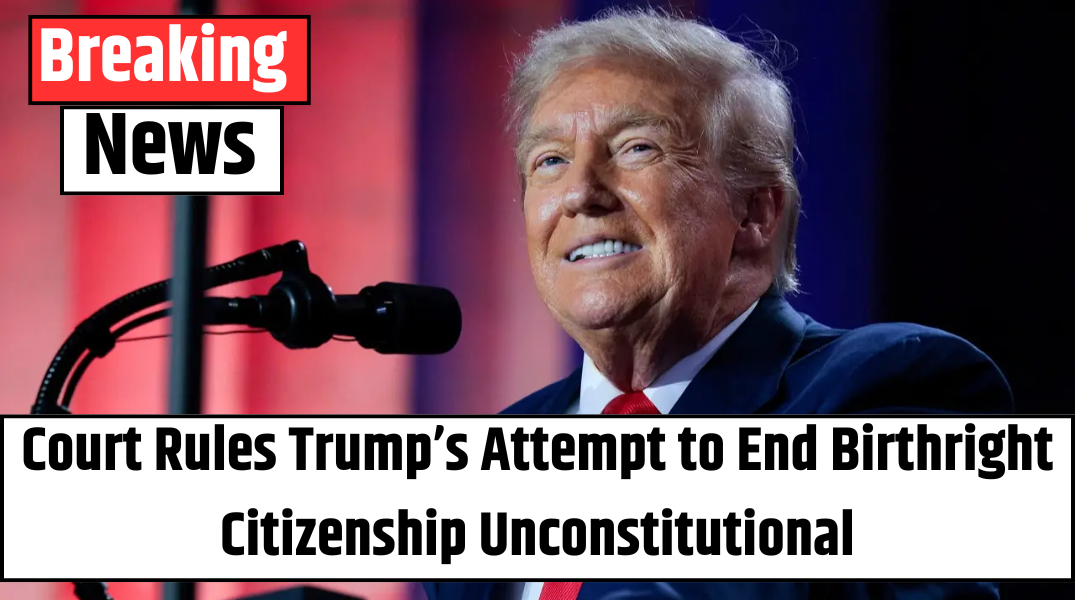A federal appeals court in San Francisco has ruled that former President Donald Trump’s executive order aiming to end birthright citizenship is unconstitutional, upholding a previous nationwide injunction that prevented the policy from taking effect.
The decision, handed down Wednesday by a three-judge panel from the 9th U.S. Circuit Court of Appeals, affirmed a lower-court ruling that found the order in violation of the 14th Amendment. The case originated in Seattle, where U.S. District Judge John C. Coughenour first blocked the administration’s effort to deny automatic citizenship to children born on U.S. soil to undocumented or temporary immigrants.
In a 2-1 opinion, the majority of the appellate court sided with the district court’s interpretation of the Constitution, stating, “Denying citizenship to individuals born in the United States, based solely on their parents’ immigration status, directly contradicts the plain text and longstanding interpretation of the Citizenship Clause.”
The ruling keeps intact a nationwide ban on implementing the order and may accelerate the matter’s return to the U.S. Supreme Court for final resolution. The court emphasized that while the high court has generally narrowed the use of nationwide injunctions, this case qualifies under exceptions where inconsistent enforcement across states would cause chaos.
The states involved in the lawsuit — Washington, Oregon, Arizona, and Illinois — argued that without a universal injunction, birthright citizenship would be inconsistently applied, leading to confusion and complications in state systems that rely on citizenship status.
Judges Michael Hawkins and Ronald Gould, both Clinton appointees, agreed that the national injunction was necessary to provide full relief. “The district court acted within its discretion to prevent legal uncertainty across state lines,” they wrote.
Also Read – New Aurora Law Outlaws Sale of Meth Pipes, Laughing Gas, and More
Dissenting Judge Patrick Bumatay, appointed by Trump, challenged the states’ standing to bring the lawsuit and criticized the use of a nationwide injunction. However, he did not directly address the constitutionality of the birthright citizenship order.
At the heart of the legal dispute is the interpretation of the 14th Amendment’s Citizenship Clause, which affirms that anyone born or naturalized in the United States and subject to its jurisdiction is a citizen. The Justice Department had argued that this clause should not apply to children born to individuals who are in the U.S. temporarily or without legal status.
The states countered by citing the landmark 1898 Supreme Court decision United States v. Wong Kim Ark, which ruled that a child born in San Francisco to Chinese immigrant parents was a U.S. citizen by birthright.
Trump’s executive order, issued during his presidency, stated that a child born in the U.S. would not be granted citizenship if neither parent was a U.S. citizen or lawful permanent resident. It has faced at least nine legal challenges across the country.
As of now, the White House and Department of Justice have not issued any public response to the 9th Circuit’s decision.





